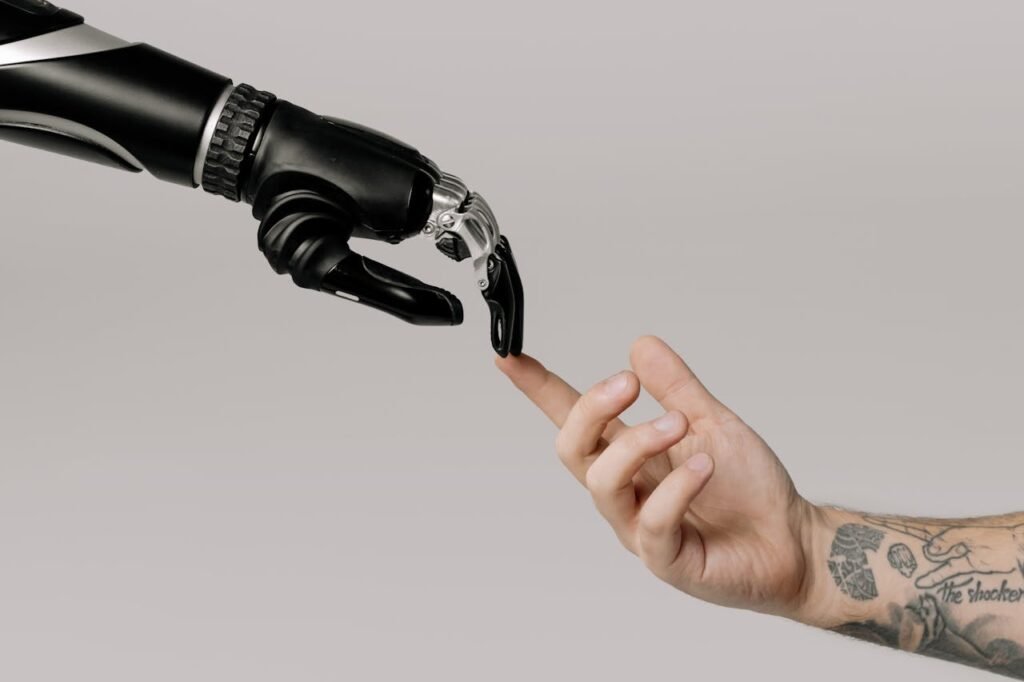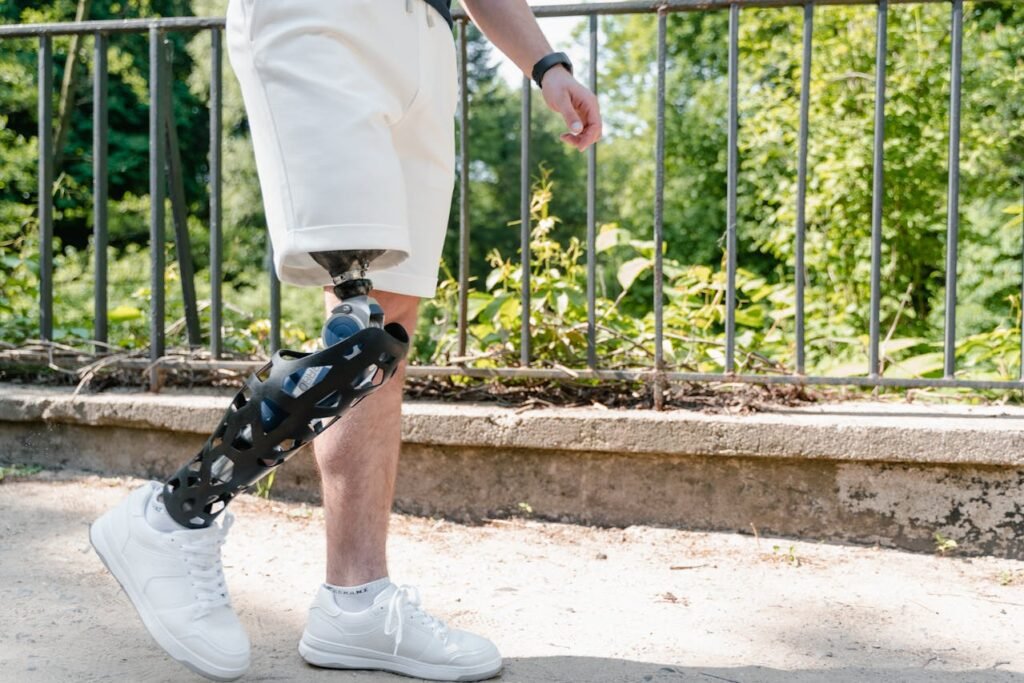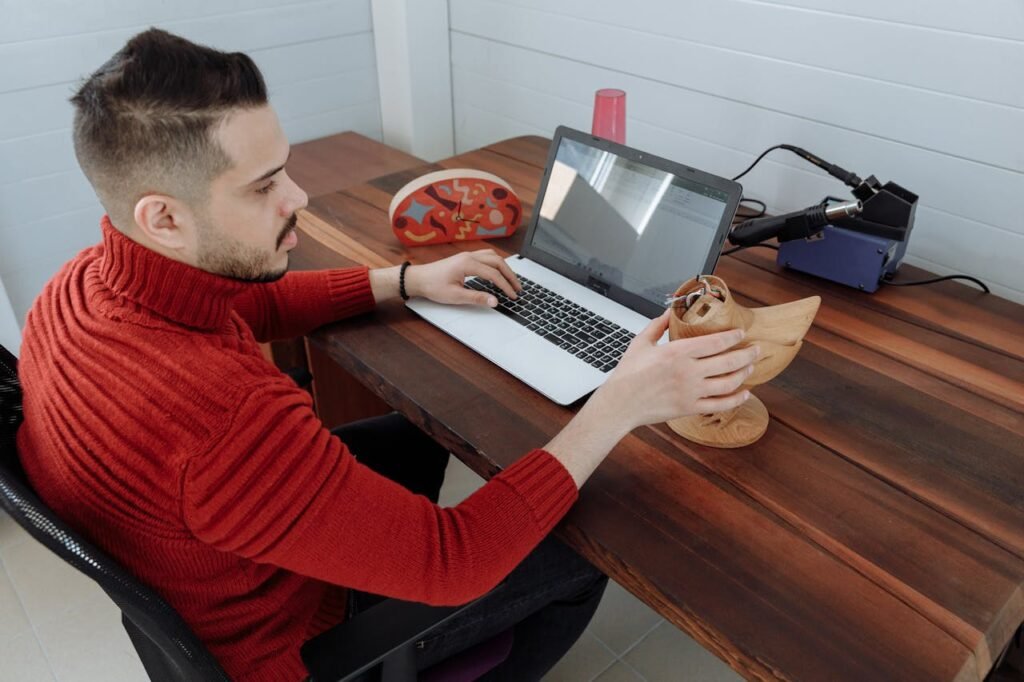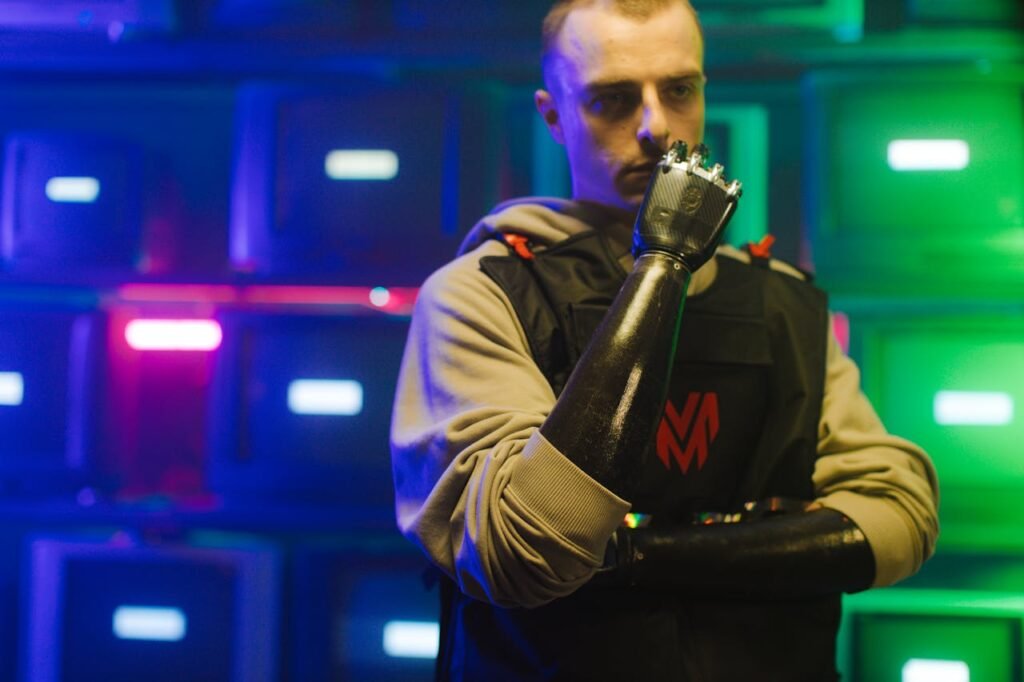The ability to regain control, independence, and confidence after the loss of a hand is a deeply personal journey. Prosthetic hands play a transformative role in this process, offering a blend of functionality and emotional empowerment. However, with the variety of prosthetic models available today—each tailored to specific needs, preferences, and budgets—choosing the right one can feel overwhelming.
This guide is designed to simplify the decision-making process. We’ll explore the features, strengths, and limitations of different prosthetic hand models, helping you understand what sets each apart and how to determine the best fit for your lifestyle. Let’s dive into the options and uncover how the right prosthetic hand can transform your everyday life.
Understanding the Basics of Prosthetic Hands
Prosthetic hands are much more than mechanical devices. They are extensions of the body, designed to restore a sense of normalcy and enable users to perform essential tasks. From simple gripping to advanced, multi-articulating movements, the technology behind prosthetic hands has come a long way.
Functional Categories of Prosthetic Hands
Prosthetic hands fall into three primary categories: passive, body-powered, and myoelectric. Each type serves a unique purpose and is suited for specific activities and goals. Understanding these categories is key to identifying the right option for your needs.
Passive prosthetics focus on appearance and basic support. These hands are lightweight, durable, and often used for cosmetic purposes or as a stabilizing tool during tasks.
Body-powered prosthetics use a system of cables and harnesses that connect to the user’s residual limb. By moving specific muscles or body parts, users control the hand’s grip and release functions. These prosthetics are durable, relatively affordable, and well-suited for heavy-duty tasks.
Myoelectric prosthetics represent the cutting edge of technology. These devices are controlled by electrical signals generated by the user’s muscles. Myoelectric hands can mimic natural movements, such as pinching, gripping, or rotating the wrist, offering unparalleled versatility and precision.
At Robobionics, we provide prosthetic hands across all these categories, ensuring users can find a solution that aligns with their goals, lifestyle, and budget.
Functionality as the Core of Design
At their core, prosthetic hands aim to replicate the movements and capabilities of a natural hand. Whether it’s gripping, pinching, or providing stability, every prosthetic is engineered to address specific functional needs. However, the level of sophistication varies greatly between models.
Passive prosthetics, for instance, focus primarily on providing a natural appearance and basic support. These devices are ideal for users who need a stabilizing aid rather than active movement. On the other hand, body-powered and myoelectric prosthetics introduce varying degrees of functionality, ranging from simple gripping to intricate, multi-articulating movements.
Businesses need to educate users about these distinctions clearly. By demonstrating how each type aligns with different goals—whether it’s performing heavy-duty tasks or fine motor activities—companies can guide users toward options that best suit their lifestyles.
The Role of Advanced Materials
The materials used in prosthetic hands have a direct impact on their performance, durability, and comfort. Modern prosthetics often incorporate lightweight composites, medical-grade silicone, and high-strength metals like titanium.
These materials ensure that the prosthetic is durable enough to withstand daily use while remaining comfortable to wear for extended periods.
For businesses, investing in research and development of innovative materials can set their products apart. Highlighting the benefits of advanced materials—such as their ability to reduce fatigue or enhance the lifelike appearance of passive prosthetics—adds value to the user experience.
At Robobionics, we prioritize the use of premium materials to ensure that every prosthetic is both functional and comfortable.
Understanding the Anatomy of a Prosthetic Hand
Prosthetic hands are composed of several key components, each contributing to the device’s overall functionality. For users, understanding these components provides clarity about how the prosthetic works and what to expect in terms of performance. For businesses, breaking down these elements into simple, relatable terms fosters transparency and builds trust.
The socket is the foundation of any prosthetic hand. It is custom-designed to fit the user’s residual limb, ensuring a secure and comfortable connection. A poorly fitted socket can lead to discomfort and reduced functionality, making precision in this component essential.
The mechanism—whether mechanical or electronic—controls the movement of the hand. In body-powered prosthetics, this involves cables and harnesses that transfer force from the user’s movements to the prosthetic. Myoelectric hands rely on sensors and motors to translate muscle signals into precise actions, offering greater versatility.
Finally, the terminal device, or the “hand” itself, determines how the prosthetic interacts with objects. From basic hooks to advanced multi-finger designs, this component dictates the range of tasks the prosthetic can perform. Businesses should clearly explain these variations, providing demonstrations or real-life applications to help users understand the capabilities of each design.
Bridging Functionality and Aesthetics
While functionality is paramount, the aesthetic design of a prosthetic hand also plays a significant role in user satisfaction. For some users, a prosthetic that closely resembles a natural hand helps them feel more comfortable in social settings.
For others, a sleek, modern design with bold colors may better reflect their personality and preferences.
Businesses can cater to this diversity by offering customizable options that combine form and function. Encouraging users to participate in the design process not only enhances satisfaction but also fosters a sense of ownership and pride in their prosthetic.
At Robobionics, we offer a range of customization choices, ensuring that every prosthetic hand is as unique as its user.
Fostering Innovation Through Collaboration
The development of prosthetic hands is a dynamic field, driven by constant advancements in technology and user feedback. Businesses that actively collaborate with engineers, healthcare professionals, and users are better positioned to create solutions that address real-world needs.
User involvement is particularly valuable. By collecting feedback on what works and what doesn’t, companies can refine their designs and introduce features that enhance usability. For example, a user who highlights challenges with grip strength may inspire the development of a more robust gripping mechanism in future models.
At Robobionics, we view user collaboration as a cornerstone of innovation. Our approach involves working closely with individuals during the design and testing phases, ensuring that every prosthetic we create delivers on its promise of functionality and comfort.
Empowering Users Through Education
For many users, the world of prosthetics is unfamiliar and filled with technical jargon. Simplifying the learning process and providing accessible information empowers users to make informed decisions.
Businesses can create value by offering resources like video tutorials, interactive guides, or one-on-one consultations that explain the basics of prosthetic hands in plain terms.
Education also extends to healthcare providers and caregivers, who play a key role in supporting users. Training programs that equip them with knowledge about prosthetic operation, maintenance, and troubleshooting can make the transition smoother for users.

Comparing Popular Prosthetic Hand Models
Different prosthetic models cater to diverse user needs, from simple daily tasks to specialized activities. Understanding the features of each type can help narrow down your options.
Passive Prosthetics
Passive prosthetics are an excellent choice for users who prioritize aesthetics or need lightweight support. These hands are often designed to match the user’s skin tone and anatomy, offering a lifelike appearance that boosts confidence in social situations.
While passive hands don’t offer active movement, they serve as stabilizing aids. For example, they can help hold objects in place while the other hand performs fine motor tasks. Passive prosthetics are also ideal for individuals who want a lightweight and low-maintenance option.
At Robobionics, we take pride in crafting passive prosthetics that balance realism with durability, ensuring users feel confident and comfortable in every setting.
Body-Powered Prosthetics
Body-powered prosthetics are known for their reliability and simplicity. Using a system of cables and a harness, these hands are controlled by the user’s physical movements, such as shoulder or chest contractions.
This makes them a robust choice for individuals who engage in manual labor or activities that require strong, repetitive gripping.
One of the significant advantages of body-powered prosthetics is their affordability. They are typically more cost-effective than myoelectric hands, making them accessible to a broader range of users. Additionally, their mechanical nature means they are less dependent on batteries or electronics, reducing the need for frequent maintenance.
For users who need a durable and practical solution, Robobionics’ range of body-powered prosthetics combines strength with user-friendly design, ensuring functionality in demanding environments.
Myoelectric Prosthetics
Myoelectric prosthetics represent the pinnacle of advanced prosthetic technology. These hands use sensors placed on the residual limb to detect electrical signals generated by muscle contractions.
The signals are then translated into precise movements, allowing users to perform complex tasks with greater control and naturalness.
Myoelectric hands are ideal for users who value versatility and a high degree of functionality. They can perform delicate tasks, such as typing or holding fragile items, and adapt to various grip patterns for different objects. Some models even feature sensory feedback, enabling users to “feel” the pressure or texture of objects they handle.
At Robobionics, we specialize in creating myoelectric prosthetics that blend cutting-edge technology with intuitive design. Our goal is to deliver hands that feel like an extension of the user’s own body.
Factors to Consider When Choosing a Prosthetic Hand
Selecting the right prosthetic hand is a deeply personal decision, influenced by a variety of factors. From the level of amputation to your lifestyle and daily activities, each aspect plays a crucial role in finding the best fit. Understanding these considerations will empower you to make an informed choice that aligns with your needs and goals.
Level of Amputation
The type of prosthetic hand you choose depends largely on the level of amputation. For users with a below-elbow amputation, options like myoelectric or body-powered prosthetics offer excellent functionality due to the availability of muscle signals or physical movement.
For individuals with an above-elbow amputation, prosthetics with integrated elbow and wrist units may be necessary. These devices often require additional controls, such as switches or dual sensors, to manage complex movements. Discussing your specific anatomical needs with a prosthetist ensures that your device is optimized for comfort and functionality.
At Robobionics, our team works closely with users to assess their residual limb and recommend designs that maximize ease of use and comfort.

Your Daily Routine and Lifestyle
The activities you perform daily should heavily influence your choice of prosthetic hand. If your day involves heavy physical tasks, such as lifting, gripping tools, or working in construction, a durable body-powered prosthetic may be ideal.
For users engaged in activities requiring fine motor skills—like typing, cooking, or playing musical instruments—a myoelectric hand offers the precision and adaptability needed for success. Similarly, those who prioritize aesthetics for social or professional settings may find passive prosthetics to be the perfect solution.
At Robobionics, we prioritize understanding your lifestyle to create prosthetic solutions that seamlessly integrate into your routine, ensuring you can focus on what matters most.
Budget and Long-Term Costs
Prosthetic hands vary significantly in price, with passive prosthetics being the most affordable and advanced myoelectric hands representing a higher investment. However, it’s essential to consider long-term costs, such as maintenance, repairs, or battery replacements for electronic models.
For users with financial constraints, exploring financing options or insurance coverage can help make advanced prosthetics more accessible. At Robobionics, we strive to balance affordability with quality, offering flexible payment plans and durable designs that minimize maintenance needs.
Evaluating Features and Performance
Once you’ve identified the type of prosthetic that suits your needs, it’s time to evaluate specific models. Comparing features and understanding how they align with your expectations ensures you choose a device that enhances your quality of life.
Grip Patterns and Control
A critical feature to assess is the range of grip patterns a prosthetic hand can perform. Myoelectric models often include multiple pre-programmed grips, such as precision pinch, lateral grip, or cylindrical grip. These enable users to handle various objects, from pens to grocery bags, with ease.
For body-powered prosthetics, the strength and reliability of the gripping mechanism are vital. Testing the responsiveness and control of these systems during a trial session can help you determine if the model meets your needs.
Robobionics designs prosthetic hands with intuitive controls and versatile grip patterns, ensuring you can tackle tasks with confidence and comfort.
Comfort and Fit
A well-fitted prosthetic is essential for long-term satisfaction. The socket, which connects the prosthetic to your residual limb, must be custom-designed to distribute weight evenly and avoid pressure points.
Materials like silicone liners or gel padding enhance comfort, especially for users with sensitive skin.
At Robobionics, we use advanced scanning technology to create sockets that fit perfectly, minimizing irritation and maximizing comfort. Our focus on personalized design ensures each prosthetic feels like a natural extension of the user’s body.
Durability and Maintenance
Durability is a crucial factor, particularly for users who engage in physical or outdoor activities. Prosthetic hands made from lightweight but strong materials, such as carbon fiber or titanium, provide resilience without adding bulk.
Maintenance requirements also vary between models. Myoelectric prosthetics with electronic components may require occasional servicing, while body-powered devices are generally low-maintenance. Understanding these aspects before purchase helps you plan for the long-term care of your prosthetic.

Actionable Advice for Businesses
For businesses in the prosthetics industry, meeting the diverse needs of users requires a strategic and empathetic approach. By focusing on innovation, customization, and user education, companies can deliver solutions that truly make a difference in people’s lives.
Invest in Customization
Every user is unique, and customization is key to delivering prosthetic hands that align with individual preferences and goals. Offering modular designs, adjustable features, and aesthetic options allows users to create a device that feels truly personal.
At Robobionics, we prioritize customization in every aspect of our prosthetics, from fit and functionality to design and color. This user-centric approach builds trust and ensures satisfaction.
Focus on User Education
Many users may feel overwhelmed when choosing a prosthetic hand, especially if they are new to the process. Providing clear, accessible resources—such as videos, guides, or in-person consultations—helps users understand their options and make informed decisions.
Businesses that prioritize education not only empower users but also establish themselves as trusted advisors in the prosthetics journey. At Robobionics, we’re committed to guiding users every step of the way, ensuring they feel confident and supported.
The Emotional Impact of Choosing the Right Prosthetic
The journey to finding the perfect prosthetic hand is about more than functionality—it’s a deeply emotional process that touches on identity, confidence, and independence. The right prosthetic can do more than restore mobility; it can provide a renewed sense of self and open doors to experiences users may have thought were closed forever.
Restoring a Sense of Normalcy
For many users, a prosthetic hand is a tool that helps bridge the gap between the life they had and the life they aspire to lead. Tasks that once felt daunting—like shaking hands, holding a child, or preparing a meal—become achievable, restoring a sense of normalcy.
Businesses can emphasize this transformation by showcasing how their prosthetics empower users to rediscover daily joys. Sharing real-life success stories through campaigns can inspire confidence and demonstrate the tangible impact of these devices.
At Robobionics, we collaborate with users to highlight their achievements, reinforcing the message that our prosthetics are more than devices—they are pathways to independence.
Building Confidence and Self-Esteem
Appearance plays a significant role in how users feel about their prosthetic hand. For some, a realistic design that closely resembles a natural hand provides comfort and confidence in social interactions.
Others may prefer bold, modern designs that reflect their personality and make a statement.
Providing customizable options allows users to feel ownership and pride in their prosthetic, boosting self-esteem. For businesses, offering a range of design choices, from lifelike aesthetics to artistic elements, is an opportunity to celebrate individuality and build deeper connections with customers.

Overcoming Emotional Barriers
Adapting to a prosthetic hand can be an emotional challenge. Users may feel self-conscious or hesitant about navigating the learning curve of a new device. Businesses can help by creating supportive environments where users feel encouraged and understood.
Offering peer mentorship programs, support groups, or access to counseling services can ease the transition and foster a sense of community.
These initiatives not only enhance the user experience but also build loyalty and trust. At Robobionics, we actively promote peer connections, recognizing the power of shared experiences in overcoming emotional barriers.
The Role of Rehabilitation in Maximizing Potential
Rehabilitation is a critical component of the prosthetic journey, turning a new device into a tool that feels intuitive and natural. For businesses, providing comprehensive rehabilitation support is an opportunity to ensure user satisfaction and long-term success.
Personalized Training Programs
Every user has unique needs and goals, and rehabilitation programs should reflect this individuality. Personalized training helps users master their prosthetic’s features, whether it’s fine-tuning grip patterns on a myoelectric hand or building strength for a body-powered device.
For businesses, partnering with experienced physiotherapists and occupational therapists ensures users receive tailored guidance. Offering digital resources, such as interactive apps or video tutorials, enhances accessibility and allows users to practice at their own pace.
Gamified Rehabilitation
Engaging users in the rehabilitation process is essential, and gamification has proven to be an effective strategy. By turning exercises into games or challenges, users can stay motivated while developing skills.
For example, a game that rewards users for improving their grip strength or accuracy makes the process enjoyable and rewarding.
At Robobionics, we integrate gamified tools into our rehabilitation programs, combining practicality with fun to create a positive learning experience.
Encouraging Regular Use
Rehabilitation doesn’t end when users leave the clinic. Encouraging consistent use of the prosthetic in real-life scenarios is key to building confidence and fluency.
Businesses can provide follow-up support, check-ins, and additional training sessions to ensure users feel comfortable and capable as they adapt to their new hand.

Improving Accessibility for Advanced Prosthetics
While advanced prosthetic hands offer incredible features, they can also come with higher costs and technical complexities that may limit access for some users. Businesses must focus on bridging this gap to ensure that cutting-edge solutions are available to everyone who can benefit from them.
Exploring Modular Designs
One way to improve accessibility is by offering modular prosthetics. Instead of purchasing a fully featured device upfront, users can start with a basic model and upgrade with additional features over time.
For example, a myoelectric hand could be enhanced with sensory feedback capabilities or advanced grip patterns as the user’s needs evolve.
For businesses, this approach makes advanced prosthetics more attainable and fosters ongoing relationships with customers. At Robobionics, we design modular solutions that adapt to users’ changing requirements, ensuring they receive long-term value from their investment.
Advocating for Insurance Coverage
Many users face challenges in securing financial assistance for prosthetics. Businesses can play a proactive role by advocating for improved insurance coverage and working with policymakers to expand access to advanced devices.
Educating users about available funding options and offering flexible payment plans can also make a significant difference.
At Robobionics, we actively engage with insurers and non-profit organizations to increase affordability, ensuring that no user is left behind.

Localized Manufacturing and Distribution
The cost of importing advanced prosthetics can be a barrier in many regions. By establishing local manufacturing and distribution hubs, businesses can reduce costs and deliver solutions faster. Leveraging technologies like 3D printing further enhances efficiency and affordability.
For users in remote or underserved areas, localized production ensures they have access to the same high-quality prosthetics as those in urban centers. This commitment to accessibility strengthens brand reputation and fosters inclusivity.
Conclusion
Choosing the right prosthetic hand is a deeply personal journey, shaped by factors like lifestyle, budget, and goals. Each model, from passive designs to advanced myoelectric hands, offers unique benefits that cater to diverse needs. For users, the right choice can restore independence, confidence, and a sense of self.
For businesses, the opportunity lies in providing solutions that go beyond technology. By focusing on customization, education, rehabilitation, and accessibility, companies can create prosthetics that truly transform lives. At Robobionics, we are proud to lead this mission, crafting prosthetic hands that empower users to embrace their potential and achieve their dreams.



